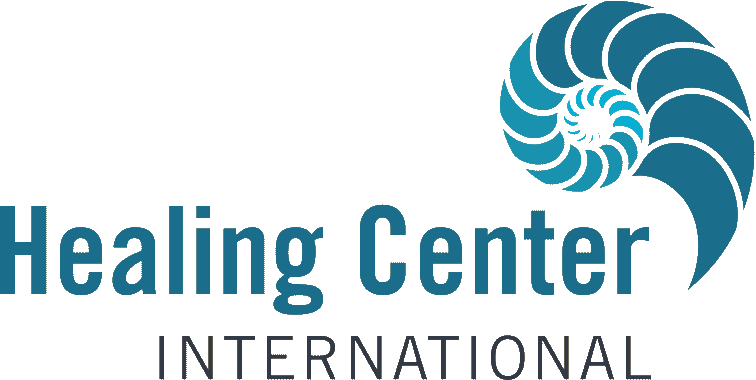Five Ways to Accelerate Your Spiritual and Emotional Growth in 2022: Adding a Spiritual Exercise
/It is hard to change, especially as we age. We tend to get in a rut and stay there. However, there are things we can do to keep our brains active and flexible. One of them is to increase cognitive effort[1] by doing something new at work or home, such as learning a new skill. In today’s blog, I am going to describe three spiritual practices that you can add to your daily rhythms that will help you grow spiritually as well as help your brain by giving you a new skill to master in 2022.
I’ll be posting a new idea each month for the next five months. This month I am going to start with the easiest of the five: Add a spiritual discipline or two or three to your daily rhythm. The three practices I am asking you to consider are:
1. A waking prayer
2. The examen
3. Lectio Divina
I would not recommend trying to start all three at once. Pick one and see if you can do it regularly—note I did not say perfectly—for a month. Then consider adding another.
A Waking Prayer
Your waking prayer can be as individual as you are. To start, keep it simple. For example, here’s one:
Good morning, Lord. Thank you for making this day. I invite you to lead and guide me. Help me to hear and obey. I pray that your supernatural strength would flood my innermost being. I love you and am grateful that I am yours. Amen.
You can write your prayer on a card and put it by your bed or print it on a sheet of paper and tape it to your bathroom mirror. When you wake up, take a second to say this prayer.
Examen
The examen dates back to Ignatius of Loyola, a Basque nobleman born in the 15th century. There are books written on the examen, (fav below) but to keep it simple, that basic idea is that you examine your life once a day, preferable at bedtime. You reflect on what was life giving and what was draining during the day. Over the years, Christians have used many phrases. Choose the two that you like best:
For what moment today am I most grateful?[2] For what moment today am I least grateful?
Where did I see Jesus? Where did I not see Jesus? Or even ignore him?
What was life giving? When did I feel life draining away from me?
What was today’s high? What was today’s low?
What is consoling me? What is desolating?
My friend, Jan Johnson, often says that we are not changed by what we do, but by reflecting on what we are doing. The examen helps us notice our joys and sorrows. It is vital to see both. If you want to go deeper, yet still keep it simple, check out this version of the Examen HERE.
Lectio Divina
This is another ancient spiritual practice that dates back to the first half of the 16th century. In its simplest form, you read a passage of scripture, notice what word or phrase jumps out at you or shimmers. Pause and reflect, then read the passage again, slowly. Ask God to show you why that word or passage jumped out at you and what he wants you to see. Listen to any thoughts, words, or impressions that come to mind, even if they do not seem important. Write them down in your journal. Don’t forget to mark your entry with the date.
Spiritual disciplines work slowly and gradually like growing a flower garden. The best practice is to till the soil a bit every day.
I would also recommend that, before you start with a new spiritual practice, you take a moment to evaluate where you are in your spiritual life. This will mark your starting point. Ask yourself, what is working well for me? Where am I stuck? What do I long for? This is important, because often we do not recognize change even when—or maybe especially when—it is happening right inside of us. We only see it when we pay attention to what we are experiencing in our hearts, minds, and bodies. So put your marker in the sand, so to speak, by taking even five minutes to notice where you are, then write it in your journal. Don’t forget to put a date on it. Then look again in a month, or six months or a year. What has changed? What is easier now? Harder?
For me, I’ve been struggling with being angry and resentful. I find that as I reflect more and more on what is bringing me joy, I marvel at all the good things God is doing in my life and the hard things don’t seem so overwhelming. Yes, it is a lot of work, but I want to do what God is calling me to do because it is so satisfying!
Spiritual disciplines are undervalued in our fast-paced culture. One gift of the pandemic is that we slowed down.
Want more support for change? Dallas Willard says that our will is very weak. To change we need to have vision, intention and means. See if you can picture yourself doing the spiritual discipline you have decided to experiment with, such as praying when you wake up. Then ask yourself, do I actually intend to do this? Am I willing to set reminders and do this exercise if it means sacrificing time on Facebook, or Instagram? Finally ask yourself, Do I have the means? A clock. A timer on your phone? A journal. A pen? A quiet place to sit or lie for five minutes? Maybe in the car when you pull into your driveway after taking the kids to work? Or drive home from work? Each of these practices can be done in five minutes. I hope you will like them enough to want to spend a little longer but start where you can.
And don’t forget, every day, Monday through Saturday we do the Examen and Lectio at Daily Connect, between 2:00 to 3:00 PM. Consider joining us for a way to add spiritual exercises in community!
[1] Peters, R. Ageing and the Bbrain, Postgrad Med J. 2006 Feb; 82(964): 84–88.
[2] My favorite book on the Examen: Sleeping with Bread: Holding What Gives You Life, by Dennis Linn, Sheila Fabricant Linn, and Matthew Linn.


